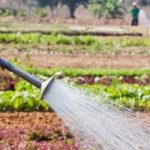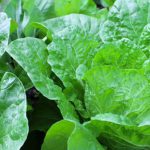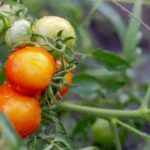Are you looking to start your own container vegetable garden? Whether you have limited outdoor space or simply want to grow your own produce in a more controlled environment, container gardening can be a great option. In this article, we will explore the world of container vegetable gardens and provide you with everything you need to know to start your own Pinterest-worthy garden.
Container vegetable gardens are becoming increasingly popular, especially for urban dwellers and those with limited outdoor space. With the help of platforms like Pinterest, you can find a myriad of creative design ideas and practical tips for starting and maintaining your very own container vegetable garden. From choosing the right containers to planting and caring for your vegetables, there is a wealth of information available online.
In this comprehensive guide, we will cover everything from the benefits of container gardening to choosing the right containers for vegetables, as well as the best vegetables for container gardening. We will also provide you with valuable tips for planting and caring for vegetables in containers, as well as creative design ideas to make your container vegetable garden not only productive but also visually appealing.
So, whether you are a beginner looking to start your first container garden or an experienced gardener looking for new ideas, this article has something for everyone interested in growing their own produce at home.
Benefits of Container Gardening
Container gardening has gained popularity in recent years as a convenient and accessible way to grow vegetables, herbs, and even fruits in small spaces. There are numerous benefits to container gardening that make it an attractive option for gardeners of all experience levels.
Some of the key benefits of container gardening include:
- Space-saving: Container gardens are perfect for those who have limited outdoor space or live in urban environments. They can be placed on balconies, patios, or even windowsills, allowing anyone to enjoy the rewards of growing their own produce.
- Portability: Unlike traditional gardens, container gardens can easily be moved around to take advantage of the best sunlight and weather conditions. This is especially useful for renters or those who frequently move houses.
- Weed and pest control: Container gardens are less susceptible to weeds and pests compared to traditional gardens, making them easier to maintain.
- Accessibility: For individuals with physical limitations or disabilities, container gardening provides a more accessible way to enjoy gardening and produce their own fresh vegetables.
These benefits make container gardening an appealing option for individuals looking to start their own vegetable garden but may not have the time, space, or experience for a full-scale traditional garden. With the rising popularity of container vegetable gardens on platforms like Pinterest, more and more people are discovering the joys of homegrown produce through this versatile and customizable gardening method.
Whether you have access to a small balcony or a tiny backyard, creating a container vegetable garden can provide you with a rewarding and sustainable source of fresh produce throughout the growing season.
Choosing the Right Containers for Vegetables
When it comes to container vegetable gardening, choosing the right containers is crucial for the success of your garden. The type and size of container you select can directly affect the growth and health of your vegetables. Here are some factors to consider when choosing containers for your vegetable garden:
1. Material: Consider the material of the container, as it can impact the temperature of the soil and moisture retention. Some common options include plastic, ceramic, wood, or fabric pots. Each material has its own advantages and disadvantages, so choose based on your specific needs and climate.
2. Size: The size of the container is important for ensuring that your vegetables have enough space to grow healthy roots. Larger vegetables like tomatoes or peppers will require bigger containers, while smaller plants like lettuce or herbs can thrive in smaller pots. Consider the mature size of the plant when choosing the container size.
3. Drainage: Proper drainage is essential for container gardening to prevent waterlogged soil, which can lead to root rot and other issues. Look for containers with drainage holes at the bottom to allow excess water to escape easily.
When selecting containers for your vegetable garden, keep in mind these considerations to ensure that your plants have a healthy environment to thrive in.
Once you’ve chosen the right containers for your vegetable garden, it’s time to start planning out which vegetables you want to grow in them. With a little creativity and careful consideration of each plant’s needs, you’ll be well on your way to a successful container vegetable garden.
The Best Vegetables for Container Gardening
When it comes to container gardening, choosing the right vegetables to grow is crucial for success. Certain vegetables thrive in small spaces and are well-suited for container gardening. Here are some of the best vegetables for container gardening:
Tomatoes
Tomatoes are a popular choice for container gardening due to their versatility and productivity. There are many varieties of tomatoes that are specifically bred for small spaces, making them perfect for containers. Look for determinate varieties, which have a more compact growth habit and do not require staking.
Peppers
Peppers, whether sweet or hot, are also well-suited for container gardening. They require a warm and sunny environment to thrive, making them ideal candidates for growing in containers on a patio or balcony. Choose smaller varieties such as mini bell peppers or patio peppers for best results.
Lettuce and Salad Greens
Lettuce and other salad greens are quick-growing and perfect for confined spaces. These leafy vegetables can be grown in shallow containers and harvested as needed for fresh salads throughout the growing season.
Herbs
Herbs like basil, parsley, mint, and cilantro are excellent choices for container gardening. Not only do they add flavor to your cooking, but they also provide aromatic foliage that can enhance your outdoor living space.
By choosing the right vegetables for your container garden, you can enjoy homegrown produce even if you have limited space. Whether you’re a beginner or an experienced gardener, there’s always something new to learn about cultivating vegetable gardens in containers – and Pinterest is an excellent resource for finding inspiration and ideas.
Tips for Planting and Caring for Vegetables in Containers
When it comes to planting and caring for vegetables in containers, there are a few key tips to keep in mind in order to ensure a successful harvest. Whether you’re a beginner or have some experience with container gardening, following these guidelines can help you make the most of your space and produce a bountiful vegetable garden.
Choosing the Right Soil and Fertilizer
One of the most important aspects of growing vegetables in containers is using the right soil and fertilizers. It’s crucial to choose a high-quality potting mix that is well-draining and nutrient-rich. Avoid using regular garden soil, as it tends to become compacted in containers and may not provide enough nutrients for your plants. Additionally, consider adding organic fertilizer or compost to replenish nutrients throughout the growing season.
Watering and Drainage
Proper watering is essential for container vegetable gardens, as pots can either dry out quickly or become waterlogged. It’s important to check the moisture level of the soil regularly and water consistently, typically once a day or more during hot, dry weather. However, be cautious not to overwater, as this can lead to root rot and other issues. Additionally, make sure your containers have adequate drainage holes at the bottom to prevent water from accumulating at the roots.
Providing Adequate Sunlight
Most vegetables require plenty of sunlight to thrive, so it’s essential to place your containers in an area that receives at least 6-8 hours of direct sunlight each day. If you’re limited on space or live in an apartment with minimal light exposure, consider utilizing grow lights as an alternative light source for your container vegetable garden.
By following these tips for planting and caring for vegetables in containers, you can create a thriving garden full of delicious homegrown produce. For more inspiration and ideas on how to design your own container vegetable garden, Pinterest is a fantastic resource with endless creative designs and layout options for any skill level gardener. So don’t hesitate to explore Pinterest for valuable insights on how others have successfully grown vegetables in limited spaces with beautiful designs.
Creative Design Ideas for Container Vegetable Gardens
When it comes to container vegetable gardens, there are plenty of creative design ideas that can help you make the most out of your space. One popular idea is to use vertical gardening techniques, which involve growing plants upward on a trellis or other support system.
This not only saves space but also adds visual interest to your garden. Another creative design idea is to mix and match different types of containers, such as traditional pots, hanging baskets, and even repurposed objects like crates or old tires.
Colorful and diverse plant combinations can also add visual appeal to your container vegetable garden. Consider combining different vegetables with contrasting colors and textures, or mixing in some ornamental plants for added beauty. Additionally, you can get creative with the layout of your containers by arranging them in unique patterns or using tiered shelving to create an eye-catching display.
For those looking for inspiration and ideas for their container vegetable gardens, Pinterest is a fantastic resource. From DIY tutorials to stunning garden layouts, Pinterest offers a wealth of information for novice and experienced gardeners alike. By searching for “container vegetable gardens” or related keywords on Pinterest, you can discover countless innovative design ideas and helpful tips from fellow gardening enthusiasts.
| Design Idea | Description |
|---|---|
| Vertical Gardening | Growing plants upward on a trellis or support system. |
| Mixed Containers | Combining different types of containers for a varied look. |
| Colorful Plant Combinations | Mixing different vegetables with contrasting colors and textures. |
By incorporating these creative design ideas into your container vegetable garden, you can transform your space into a beautiful and productive oasis. Whether you have limited outdoor space or simply want to add more greenery to your patio or balcony, container gardening offers endless possibilities for creativity and innovation.
How to Start a Container Vegetable Garden on Pinterest
Pinterest is a great platform for inspiration and ideas when it comes to starting a container vegetable garden. There are countless creative and innovative designs that can help beginners get started on their own projects. With the help of Pinterest, individuals can gather different ideas, tips, and techniques from experienced gardeners and gardening enthusiasts.
One of the benefits of using Pinterest for starting a container vegetable garden is the access to an extensive range of ideas. Users can find various styles and designs, including vertical gardens, hanging gardens, and unique repurposed containers. These ideas can inspire individuals to create their own personalized container vegetable garden that suits their space and preferences.
Furthermore, Pinterest is also a valuable resource for learning about different plant varieties, suitable containers, soil mixes, and maintenance tips. Users can come across gardening blogs, tutorials, and step-by-step guides on how to start and maintain a successful container vegetable garden. Additionally, users have the ability to save or pin their favorite ideas to refer back to at any time during their gardening journey.
Lastly, by utilizing Pinterest for starting a container vegetable garden, individuals can join gardening communities or group boards where they can share their own experiences, ask questions, seek advice from experienced gardeners, and connect with like-minded individuals who have similar interests in growing vegetables in containers.
| Benefits of Using Pinterest | How It Helps |
|---|---|
| Access to diverse design ideas | Inspires creativity and personalization |
| Learning about different plant varieties | Helps in making informed decisions about what to grow |
| Joining gardening communities | Fosters connection with experienced gardeners for guidance |
Maintaining and Harvesting From Your Container Vegetables
Once you have successfully set up your container vegetable garden, the next step is to maintain and eventually harvest from it. Regular maintenance is crucial in ensuring that your vegetables grow healthy and bountiful. This includes watering, fertilizing, protecting from pests, and ensuring adequate sunlight. Regularly check the soil moisture levels and adjust your watering schedule accordingly to prevent over or under-watering.
Harvesting from your container vegetables is a rewarding experience, as you get to enjoy the literal fruits of your labor. The time to harvest varies depending on the type of vegetable you are growing, so it’s important to research each specific vegetable’s harvesting guidelines. Make sure to use sharp gardening shears or scissors to avoid damaging the plant when harvesting. Remember that the more frequently you harvest from your plants, the more produce they will yield.
For those seeking creative design ideas for their container vegetable garden, Pinterest can be a valuable resource. Many gardening enthusiasts use Pinterest to share their innovative and aesthetically pleasing container garden designs.
You can find inspiration for vertical gardens, color-coordinated planters, and unique container choices that not only serve a functional purpose but also enhance the overall look of your space. By exploring different ideas on Pinterest, you can discover new ways to maximize your space and create a visually appealing container vegetable garden.
Container vegetable gardens are an excellent way for beginners to dip their toes into gardening without feeling overwhelmed by a large outdoor plot. With proper maintenance and care, these gardens can thrive regardless of available space, making them a convenient option for urban dwellers or those with limited yard space. Whether it’s on a balcony, patio, or windowsill, anyone can enjoy cultivating their own fresh produce through container gardening.
Conclusion
In conclusion, container vegetable gardening is an excellent option for beginners and seasoned gardeners alike. It offers a variety of benefits, such as the ability to grow vegetables in limited space, easy mobility, and the opportunity to control the growing environment. Whether you have a small urban balcony or a spacious backyard, container vegetable gardens can be tailored to suit your needs and preferences.
By choosing the right containers, selecting suitable vegetables, and following essential planting and caring tips, anyone can create a thriving container vegetable garden. There are numerous creative design ideas that can help turn your garden into a beautiful and functional space. From hanging baskets to vertical gardens, the possibilities for creating an aesthetically pleasing container vegetable garden are endless.
For those interested in learning more about container vegetable gardening or seeking inspiration for their own projects, Pinterest is an excellent resource. On Pinterest, beginners can find helpful tips, step-by-step guides, and innovative design ideas for their container vegetable gardens. Additionally, seasoned gardeners can share their experiences and expertise with others in the online community of container vegetable garden enthusiasts.
With proper maintenance and care, one can look forward to bountiful harvests from their container vegetables throughout the growing season. So why not give it a try? Start your own container vegetable garden today.

If you’re looking to get into vegetable gardening, or are just looking for some tips on how to make your current garden better, then you’ve come to the right place! My name is Ethel and I have been gardening for years. In this blog, I’m going to share with you some of my best tips on how to create a successful vegetable garden.





